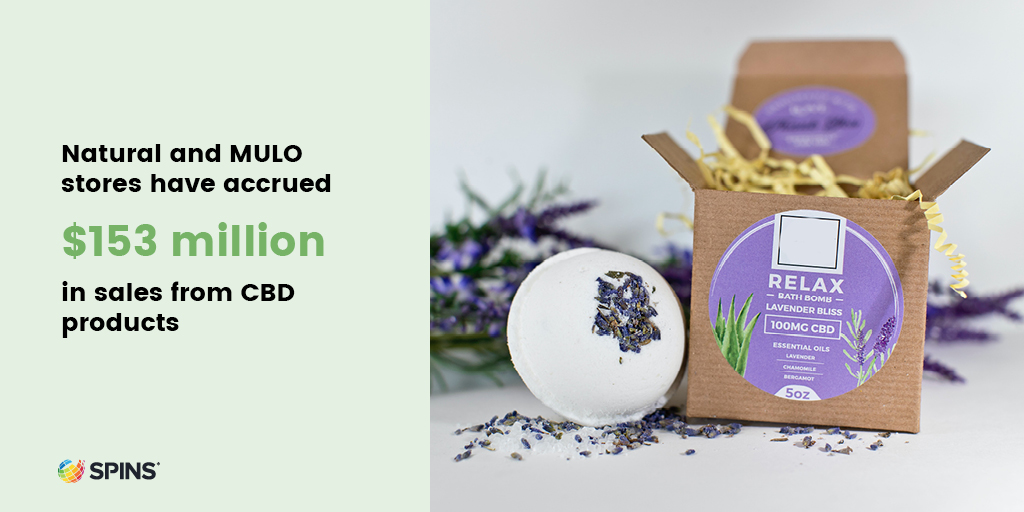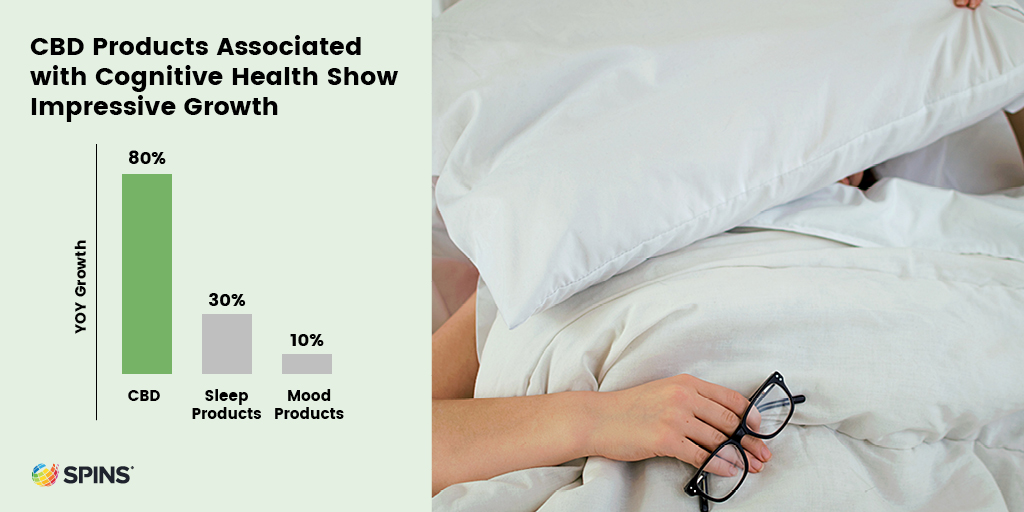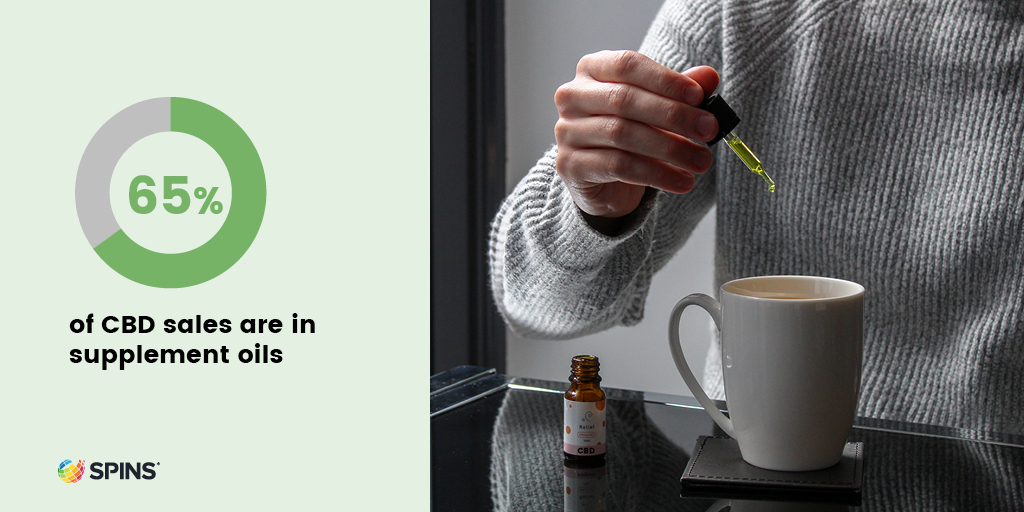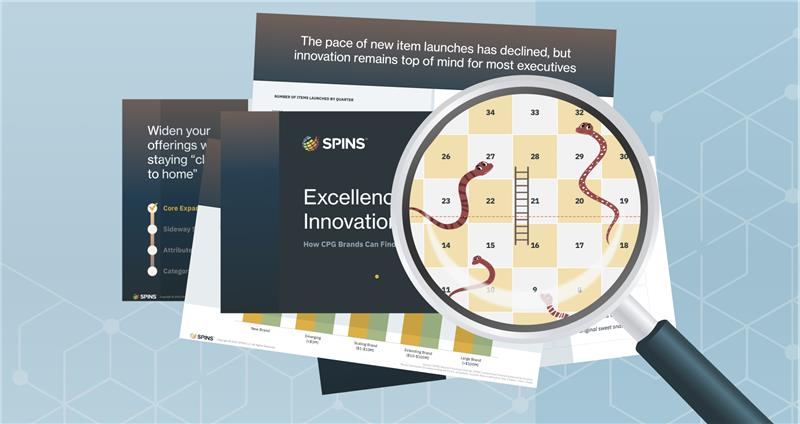The State of the CBD Retail Market
Over the last year, and especially during the COVID lockdown, CBD growth in natural and mainstream multioutlet stores has slowed down to under 1%. Yet, even with that slowed growth rate, these stores have accrued $153 million in sales from CBD products, according to SPINS’ Natural Enhanced and MultiOutlet channels (powered by IRI). That’s still a sizeable piece of the retail market for a trend that’s still finding its footing in a complicated environment.

Although CBD has become a commonplace ingredient and standalone supplement in the past few years, it has faced some unusual obstacles. Restrictions on CBD are less stringent than they used to be, especially as states have begun to ease cannabis laws, but they still vary depending on where you live. Not to mention the consumers wondering if CBD products are the same as marijuana, if its legal where they live, and what its benefits are. Education for consumers, retailers, and brands is going to be a big component of CBD’s success.
Shoppers Care About CBD’s Many Health Benefits
Although you might not be familiar with its name, the endocannabinoid system (ECS) has become an area of focus for consumers looking to maintain overall health and wellness. According to the National Institutes of Health, the ECS involved in a multitude of processes within our body, including regulating our metabolism, appetite and digestion, mood, sleep, cardiovascular system function, stress levels, and more. Experts believe the ECS is responsible for homeostasis, or the overall equilibrium of these many systems in our body.
As the name suggests, CBD is closely linked to the ECS. With a reputation for easing stress, managing anxiety, coping with chronic pain, and more, CBD has become a go-to for shoppers looking to improve their overall health and wellbeing. Many shoppers are also gravitating to CBD products that leverage what is known as the entourage effect, when the combination of multiple (non-THC) cannabinoid compounds produces different results than simply having CBD on its own. For example, taking CBD with whole hemp extracts or supplements like clove, black pepper, could boost its anti-inflammatory effects.

Cognitive health (the ability to clearly think, learn, and remember) is also proving to be a bright spot for CBD sales. According to data from SPINS’ Natural Enhanced and MultiOutlet channels (powered by IRI), we see that CBD products associated with cognitive health are showing impressive 80% growth year over year compared to less aggressive but still strong performance of products associated with sleep (nearly 30%) and mood control (nearly 10%). Although the pandemic has complicated the market, it has likely contributed to that strong growth in sleep-related products as shoppers put an emphasis on getting adequate rest during stressful times.
CBD Is Still in the Wild, Wild West
With CBD growth slowing overall but showing several bright spots, you might be wondering how to navigate this market. Right now, there is no blueprint because CBD is still in uncharted territory—and your smartest decision is to look at the data to find your next move.

Currently, 65% of CBD sales are in supplement oils—which is also the subcategory seeing the largest declines. In recent months, therapeutic topicals and topical analgesics (painkillers) have seen sales declines as well. However, as innovative products (such as waters and body care items like lip balms, deodorants, facial masks, and lotions) bring CBD into new areas, they also bring opportunity to draw in more shoppers.
Right now, the uneven sales story could be the result of a couple of reasons. First, we might be witnessing consumers finding and sticking with specific products. Commonly, after a trend begins to level off and shoppers have tested the variety of options on the market, they return to the brands or products that they have come to trust. This is especially true in mature markets. Also, the disparate state laws regulating CBD and THC-based products prevent a uniform marketplace from happening across the country. It’s possible that, buyer confusion aside, the newer CBD markets are still in the discovery stage. The CBD story is still being written and it varies from state to state.
With CBD available as a standalone supplement, a functional ingredient in various products, and a new item in younger markets, the CBD landscape is going to keep growing—and it will get more complex. Do you have a partner to help you navigate the market and stay ahead of trends? Let SPINS be that data partner for you. You won’t find this CBD data elsewhere, and our experts can provide you with exclusive insights you’ll want to stay competitive in this emerging market.





